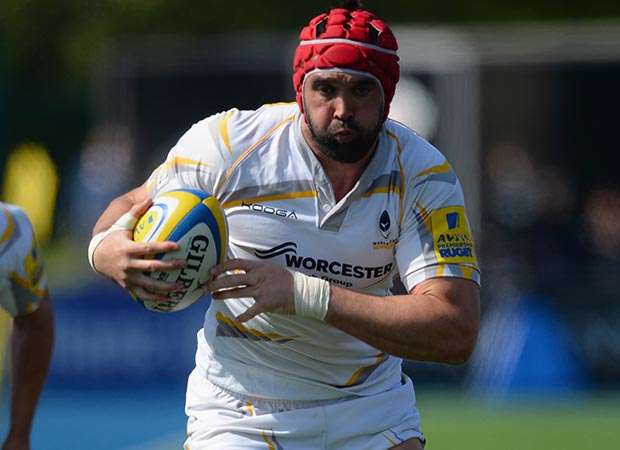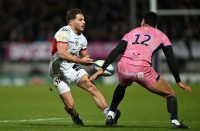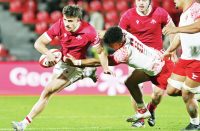 Jonathan Thomas began wondering whether something might be wrong when he spoke to the Worcester Warriors‘ squad one day last October. “I had two or three points that I wanted to make at that meeting,” he said. “I made the first point and then completely forgot the other two. So I cut it short but it left me thinking I didn’t really know what was going on.
Jonathan Thomas began wondering whether something might be wrong when he spoke to the Worcester Warriors‘ squad one day last October. “I had two or three points that I wanted to make at that meeting,” he said. “I made the first point and then completely forgot the other two. So I cut it short but it left me thinking I didn’t really know what was going on.
“I might not have thought anything more of it but I found I kept getting those momentary lapses. It was only later, when I started having mini-seizures, that I flagged it up with the medical staff.”
The Welshman’s reasons for having no choice but to give the game up, because of a form of epilepsy caused by repetitive concussion, has a particular relevance at the end of a week when Panorama highlighted rugby’s worsening headache over brain trauma.
Instead of spearheading Worcester’s return to the Premiership next month as captain, Thomas will be in the throes of adjusting to life as an ex-player. In that respect he joins a lengthening queue, one which, regrettably, has become longer in the short time since he announced his enforcement retirement.
Only a few days ago, another international back-row forward, Kevin McLaughlin, found himself in the same boat. Leinster’s Irishman, at 31 a year younger than Thomas, has been left no option but to quit ahead of his time rather than dare risk another blow to the head.
Others forced to take the same action for the same reasons within the last two years include All Black prop Ben Afeaki, England centre Shontayne Hape, Cardiff Blues flanker Rory Watts-Jones, Dragons centre Ashley Smith, Canada hooker Ryan Hamilton, Ulster prop Declan
Fitzpatrick and Nottingham wing-full back David Jackson.
Thomas is now setting out to save others from a similar fate by convincing players to banish the old-fashioned mentality, that the really hard men carry on regardless of the blows.
“As I see it, this is about education, not scare-mongering,” he says. “We have to ensure that players get rid of this attitude that they won’t leave the pitch because they don’t want to look ‘soft’.
“Everyone is of the same mentality. You get knocked down, you get back up. That’s instilled into us from an early age. But we have to get the message across that you can’t play on with head trauma and we have to target the youngest generation of players.
“It’s one thing playing with a niggle or a groin strain. Playing on after taking a blow to the head is a very different matter. You only have one brain.”
The problem goes far deeper than the kind of knock-outs suffered last season by Lions wing George North. “In a 14-year career I’ve only been unconscious once and that was for only about 15 seconds,” Thomas says.
“You don’t necessarily have to be concussed for damage to be done. It’s done with the smaller bangs which cause brain trauma and that has a cumulative effect over the years. You know as a player when you get hit and how it feels to have a fuzzy head.
“It’s good that there’s much more awareness of the issue now. The Panorama programme raised a lot of really interesting and relevant stuff. My slight concern is that it will scare parents into not letting their children play the game.
“I wouldn’t want to see that happen because I think Rugby Union is still a relatively safe sport. I have a four-year-old son (Kobi) and last weekend I took him to see his first international – Wales against Uruguay.”
Apart from two Grand Slams and 67 Tests, Thomas can take something even more precious into his retirement. He played the game in the right spirit.
How fitting, therefore, that his final act on a rugby field should have been to single out a desolate opposing head coach immediately after his Warriors had won their epic two-leg promotion decider at the expense of Andy
Robinson’s Bristol last May.
He was not to know then that he had played his last match.























